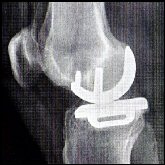VERBATIM by Loop Lonagan – Investor and man about town,
as told to John Jonelis
 Loop Lonagan here. This is a story about new tech that’s gonna clobber every one of us in our most secret and private worlds. And we can’t duck it. It’s already started and we’re gonna hafta live with whatever we get. Tonight I hear two highly placed speakers talk about how to do it the right way. The speakers figure there’s a big opportunity here, too.
Loop Lonagan here. This is a story about new tech that’s gonna clobber every one of us in our most secret and private worlds. And we can’t duck it. It’s already started and we’re gonna hafta live with whatever we get. Tonight I hear two highly placed speakers talk about how to do it the right way. The speakers figure there’s a big opportunity here, too.
I’m just outa the Chicago MIT Enterprise Forum meeting on EMR—that’s Electronic Medical Records. Yeah—all that super-personal stuff about YOU that’s gonna be there for any nurse to see. Now the foot doctor knows the ins and outs of yer sex life. You get the idea. And yeah—it’s all gonna be there for Big Brother too. Think about that a minute. Government employees. I don’t like it. But it’s the new reality so we’re gonna learn to live with it just like the rest of the stuff that hits the fan. Maybe it’ll do some good after all—I don’t know.
But I ain’t here to talk about everbody’s personal privacy problems or politics neither. Here’s the rub: Turns out, there’s a lotta friction in developing this new EMR technology. It’s complicated. There’s all sortsa human factors screwing up our quest for nirvana in healthcare. This old sage is perplexed. I guess you can say that all the forces pulling this technology in different directions flabbergasts me.
These are real impressive speakers here tonight – big time innovation names. Dr. Lyle Berkowitz MD, FACP, FHIMSS, and Marti Nyman. You probably heard of them. The audience seems to like ’em a lot. I end up in the back of the room and it’s hard to hear with this crowd but we’re gonna do the best we can.
The Industry
What we got here is a huge ubiquitous industry in turmoil. Everybody says, “I’m doing just fine. It’s the other four verticals in the industry that have to adapt to me, do it my way, and everything will be just hunky-dory.” And we all know that’s not the case.
Who’s running the asylum? The Technologist, the Provider, or the Patient? Are the technologists forcing the providers to adapt to their software? Are the providers forcing the technologist and the patient to adapt to the way that they deliver medicine? Or do we need to find ways to motivate better behaviors in the patients? Berkowitz says the primary driver of behavioral change in patients lies with the hospitals and doctors—and I agree. The patients can’t run the asylum.
.
The Doctors
Dr Berkowitz comes from the camp that says EMR needs to focus on helping the physician jazz up his ROI insteada helping the bottom line for the technologists. His sore points are Cost, Quality, and Access. At first blush that rubs me the wrong way—I mean, doctors don’t need no financial help, right? They already make tons ‘o money. It’s the innovators building the systems that take the risks and deserve the rewards.
But then I stop to think. Why should a doctor pay big bucks for something that eats into his precious time and gives no direct benefit to him? So Berkowitz wants the system to automate repeat tasks and make the doctor’s daily workflow a lot better. He’s got a point. Make it better for the docs and you might just make it better for everybody. He also makes a very good point that technology has to be useable. I agree again. Doctors are the worst Luddites on the planet.
He says EMR will create a new ecosystem within medical practices. Automation and improved daily workflow means docs do a better and more efficient job. They shuffle patients to the right kinda healthcare—sometimes cheaper healthcare. EMR is all about the providers using Big Data to save dollars and get their ducks in order. For more on Big Data go to https://chicagoventuremagazine.com/2012/10/19/the-story-behind-big-data/
Marti Nyman says he’s always worked in businesses where there’s what he calls “a convergence of crisis.” I find that an interesting turn of phrase. Within healthcare, he sees a huge, costly market that’s not easy to coordinate, control, or direct. There are so many different technologies that claim to have THE SOLUTION. It’s hard to build one platform across multiple silos.
Questions
In the end, I’m not sure anybody’s making any real progress. And I’m left with alotta questions. Nyman says “consumerization” of healthcare is gonna be important. I dunno what he means. Did he miss the election or what? Aren’t we gonna get socialized medicine now? But he says there’s all this opportunity. Everybody’s looking for ways where technology can solve the problem. I ask myself, whadda they gonna do—sell EMR systems to the government like fighter jets? So I don’t understand how that shakes out. Maybe it’ll help standardize it all but I wouldn’t bet the price of a beer on it.
Nyman gives the example of the way hospitals are at risk. If a patient comes back within 30 days, it’s on the hospital’s nickel. They didn’t handle the treatment well enough or maybe they discharged the patient too soon. They didn’t control the situation—didn’t understand it. He sees home monitoring systems and telemedicine improving the situation. Maybe that’s what he means by consumerism. But that assumes the risk will always be on the physician and the hospital. Those policies can change, especially with government in charge. So I’m left wondering if this kinda innovation will ever really happen.
Takeaways
Dr Berkowitz makes a big point of how valuable a physician’s time is. That’s a perplexing comment. Ain’t everybody’s time valuable? A doc is just a highly educated mechanic, right? What makes his time more valuable than yours or mine? As Stephen Potter sarcastically pointed out in his One Upmanship series, “The physician’s time is always more valuable than yours and in a more important way.”
But when I think about it further, this is actually a practical truth for a number of reasons. Physicians spend a big chunk o’ their lives in school, residency, and what not. That’s a big front load of capital expenditure. The years left for actual work are much more compressed than the rest of us. Surgeons need a steady hand and that’s hard to come by after you get past 50. So the career gets truncated even more. They gotta squeeze a lifetime of income outa a real short span of time. Maybe it’s not as short as football players but it’s plenty short. Then there’s the economic facts of life. Physicians are in short supply for all the reasons I just gave. And the demand is plenty high and about to get a lot higher under the National Health. The more efficient they work, the more patients they can cure. So, yeah—turns out their time is real valuable. Valuable to everybody. If tech can help that along, I’m all for it.
Speakers
One of the speakers is Lyle Berkowitz, a Primary Care Physician as well as the Chief of Medical Innovation at Northwestern Hospital, Director of IT and Innovation at another place, a serial entrepreneur, etc. etc.—the list is as long as yer arm. Maybe he’s triplets.
The other guy is Marti Nyman, Director of Innovation at UnitedHealthcare. He’s got allota VC and business development experience. Retail, Telecom, GE, Best Buy. His list goes on-and-on too.
Contacts
Find MITEF Chicago at http://www.mitefchicago.org/
..
.
Find Chicago Venture Magazine at www.ChicagoVentureMagazine.com Comments and re-posts are welcomed and encouraged. This is not investment advice – do your own due diligence. I cannot guarantee accuracy but I give you my best.
.
Copyright © 2012 John Jonelis – All Rights Reserved
.
.









































































































































































Pingback: THE STORY BEHIND BIG DATA | Chicago Venture Magazine